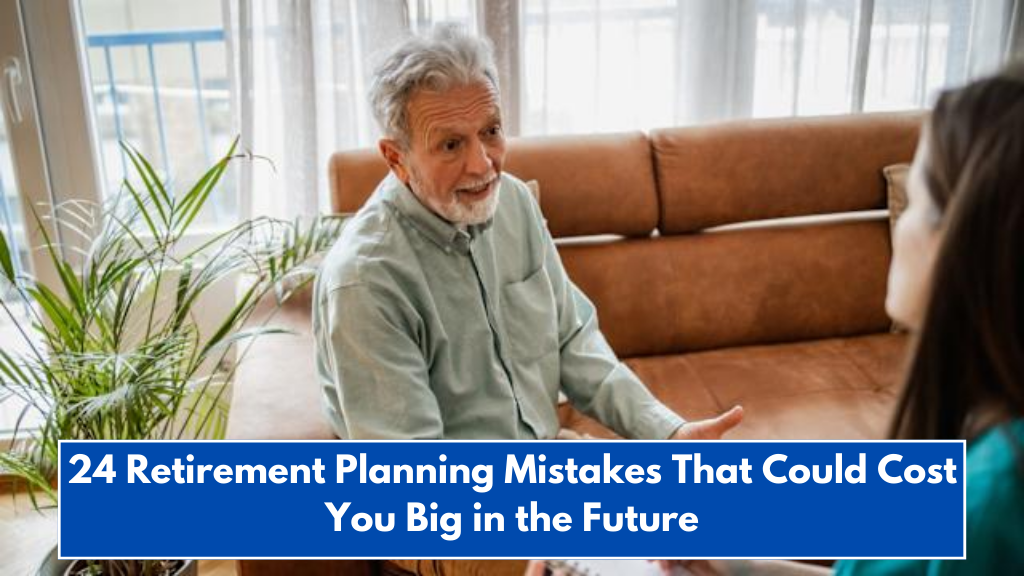Retirement is something most working people look forward to. But many also carry wrong ideas about what life after retirement actually looks like. Over the years, many stereotypes about retirees have developed—some of them funny, others unfair. These beliefs often come from people who haven’t experienced retirement themselves. In this article, we’ll look at some of the most common retirement myths that are simply not true, especially for today’s retirees in Arizona and across the USA.
Retirees Don’t Always Face Mental Decline
A popular myth is that retirees start losing their mental sharpness. But that’s not always true. In fact, how you think about retirement can affect your health. Studies show that people who expect to stay healthy in retirement often do. So, staying positive matters more than people think.
Not All Retirees Sit Around All Day
Some people imagine retirees spending all day on the couch. But that’s just one option—not the rule. Many retirees travel, start hobbies, or volunteer. They finally have time to enjoy life the way they want.
Depression Isn’t a Guarantee
While some new retirees may feel low, retirement doesn’t always cause depression. Often, if someone does feel depressed, it’s because of other health issues, not just retirement itself. Staying active and social helps improve mental health in this stage of life.
Florida Isn’t Everyone’s Dream
It’s a joke that all retirees want to move to Florida. While the state does have a large retired population, not everyone loves heat, humidity, and hurricanes. Many people choose cooler, quieter, or more affordable places to retire.
Retirement Doesn’t Mean Being Lonely
Retirement can feel lonely for some who miss the office crowd, but it’s also a great time to make new friends. Whether it’s golfing, volunteering, or joining clubs, there are many chances to stay connected.
Not All Retirees Are Grumpy
Some assume retirees are always complaining about “the good old days.” But many are cheerful and active. If someone is cranky, it’s often due to health issues, not just age or retirement.
Financial Worries Don’t Disappear
It’s a myth that retirees don’t have money problems. In reality, many depend mostly on Social Security, which often isn’t enough. Good financial planning is key, and not everyone has that luxury.
Many Retirees Still Work
Retirement doesn’t mean never working again. Some retirees return to work for money, while others just enjoy staying busy. Many take part-time jobs or freelance gigs for the social aspect.
Motivation Doesn’t Vanish
People think once you stop working, you stop caring. But retirees still have goals—whether it’s helping raise grandkids, winning a game, or supporting a cause. Motivation simply shifts in new directions.
It’s Not Just Golf and Pickleball
While golf and pickleball are popular among retirees, they are not the only activities. Many enjoy yoga, swimming, dancing, or even hiking. There’s something for everyone, depending on health and interest.
Retirement Isn’t the End of the Road
Some people believe retirees are close to the end of life. But life expectancy still gives people many years after they retire. Today’s retirees are healthier and living longer than past generations.
Retirees Know Tech Too
Many assume older people can’t use technology. But retirees today have used computers, emails, and smartphones at work. They may not love social media, but they know how to handle digital life.
Cruises Aren’t the Only Vacation Choice
There’s a belief that retirees only take cruises. But travel habits are changing. Many retirees now plan their own trips, go on road trips, or explore new countries independently.
Older Adults Can Embrace Change
Not all retirees are stuck in the past. Retirement itself is a big change, and many welcome new routines, ideas, and lifestyles. It’s unfair to say older people can’t grow or adapt.
Retirement Days Can Be Very Busy
Retirees often say they are busier now than when they worked full-time. They take care of homes, help family, attend events, and follow personal passions. Retirement doesn’t mean doing nothing.
Retirees Still Have Value
Work is just one part of life. Even without a job, retirees bring value—through wisdom, time, support, and experience. Many feel more useful during retirement than when they were working.
Retirement doesn’t look the same for everyone, and that’s the beauty of it. Some may want to relax, while others seek adventure or personal growth. What’s important is understanding that retirement is not the end, but the start of a new phase in life. Breaking these common myths can help us respect and understand retirees better and support their journey in healthier, happier ways.














